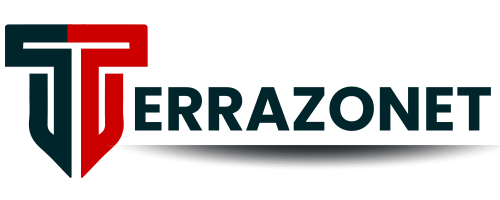Table of Contents
- Why Link Building Matters In Today’s SEO Landscape
- Key Elements of a Quality Backlink
- White Hat Techniques For Sustainable Link Building
- Common Myths & Mistakes—Busted
- How To Assess Link Opportunities Like a Pro
- What Google Wants: Signals of Trust and Authority
- Measuring Results: KPIs For Link Building Campaigns
- Conclusion
Key Takeaways
- Link building remains a pivotal component in strong SEO strategies, but the quality and relevance of links are far more important than mere quantity.
- Understanding how to assess backlink sources and avoid penalties is crucial for long-term organic success.
- Ethical practices and earned links will consistently outperform shortcuts or manipulative tactics.
- Common misconceptions still surround link building, often leading to costly mistakes or missed opportunities.
- Ongoing updates in Google’s search algorithms mean that savvy marketers must stay informed and adaptive.
Why Link Building Matters In Today’s SEO Landscape
In the rapidly evolving world of digital marketing, link building remains a crucial pillar of effective SEO strategies. Search engines, especially Google, use backlinks as a signal of trust and authority, essentially viewing each link as a vote of confidence for your website. However, search algorithms have matured, rewarding not just the presence of links, but their quality, relevance, and authenticity. Brands aiming for long-term organic growth are turning to expert link building services to secure high-value, relevant backlinks that drive sustainable results and protect them from costly penalties.
As Google and other search engines evolve, the distinction between effective strategies and risky shortcuts becomes increasingly clear. Mass link acquisition, once used for rapid ranking growth, is no longer a viable strategy for achieving this goal. Instead, the digital landscape favors contextual and editorially placed links. When done with a strategic and ethical approach, link building directly impacts visibility, helps establish authority in your niche, and creates referral pathways that attract qualified users.
Today, websites that invest in developing valuable relationships and consistently producing shareable content are rewarded. As a result, high-quality links not only signal relevance to search algorithms but also serve as digital endorsements within your wider industry network. By prioritizing links from reputable, relevant sources, you strengthen your domain’s reputation in both search results and the minds of your target audience.
While the direct value of backlinks for rankings is well-documented, their indirect benefits are just as significant. Quality backlinks can send referral traffic, increase brand exposure, and open doors to new collaborative opportunities—highlighting why a well-rounded, ethical link-building approach remains invaluable for modern online growth.
White Hat Techniques For Sustainable Link Building
The cornerstone of ethical, future-proof link building lies in “white hat” strategies—tactics that align with search engine guidelines and prioritize user value. These methods require creativity and patience, consistently delivering durable results. Among the most effective strategies are guest posting on reputable outlets, executing digital PR campaigns that secure coverage, and creating original data, surveys, or infographics that others want to cite. Resource link building, where you offer unique studies, statistics, or tools, also remains highly effective.
- Creating and sharing industry-changing research and infographics
- Participating in expert round-up posts and interviews
- Engaging with niche communities by contributing insightful comments and feedback
- Detecting and replacing broken links with fresh, value-adding resources
White hat link building not only protects your website from penalties but also establishes long-lasting authority within your industry. For comprehensive guidance, check reputable sources like Moz’s beginner’s guide to link building. Consistently applying these strategies will help your site earn trust and visibility over time. Remember, quality always outweighs quantity when it comes to building meaningful backlinks.
Common Myths & Mistakes—Busted
Misinformation is rampant when it comes to backlinks. Many mistakenly believe that mass directory submissions, spamming comment sections, or purchasing hundreds of low-quality links can yield fast results. Google’s algorithms are sophisticated enough to discount—or penalize—such tactics, sometimes resulting in severe ranking drops or manual actions. Relying on outdated or “black hat” hacks almost always backfires in the long run.
The truth is, valuable link building is neither automatic nor easy. Strategies rooted in genuinely helping users, building relationships, and consistently offering value are the only sustainable path forward. Avoid risky shortcuts and remain vigilant against practices that promise results that sound too good to be true.
How To Assess Link Opportunities Like a Pro
- Evaluate the website’s domain authority and how well its content aligns with your niche.
- Research the linking page’s organic traffic and engagement.
- Consider whether the site’s audience could benefit from your insights or offerings.
- Ensure links are editorially granted and not automatically generated or exchanged en masse.
- Scan the site for spam signals, such as excessive outbound links or outdated, low-effort content.
One final litmus test: if you’d be proud to share the linking page with your own network or clients, it’s most likely a worthy opportunity.
What Google Wants: Signals of Trust and Authority
Google’s algorithm changes and public statements underscore its preference for natural, contextually relevant backlinks. A strong link profile reflects trustworthiness, expertise, and topical authority—qualities that Google actively rewards. As algorithms become more advanced, simple link volume is no longer a reliable measure. Instead, signals such as brand mentions, in-depth features in respected media, and links from prominent industry sites matter more than ever.
Recent Google updates have placed a greater emphasis on “helpful content” and penalize manipulative or irrelevant links, further reinforcing the importance of focusing on quality and user value.
Measuring Results: KPIs For Link Building Campaigns
- Referral Traffic: Track the number of visitors arriving from new backlinks to gauge reach and relevance.
- Organic Keyword Growth: Monitor ranking improvements for primary keywords and overall search visibility.
- Domain Authority Improvement: Analyze changes in your website’s authority metrics via trusted third-party tools.
- Dwell Time: Measure whether new visitors are engaging with your content, indicating the relevance of links and user value.
Regular performance tracking ensures your link-building strategy delivers both short-term wins and steady long-term growth.
Conclusion
Effective link building relies on relevance, trust, and industry authority. By investing in high-quality strategies and leveraging expert insights to stay updated with the latest SEO changes, you gain a strong advantage in search rankings and brand visibility. Avoid outdated, risky shortcuts—focus on creating genuine value that naturally attracts links, ensuring your digital presence is set for long-term success.











